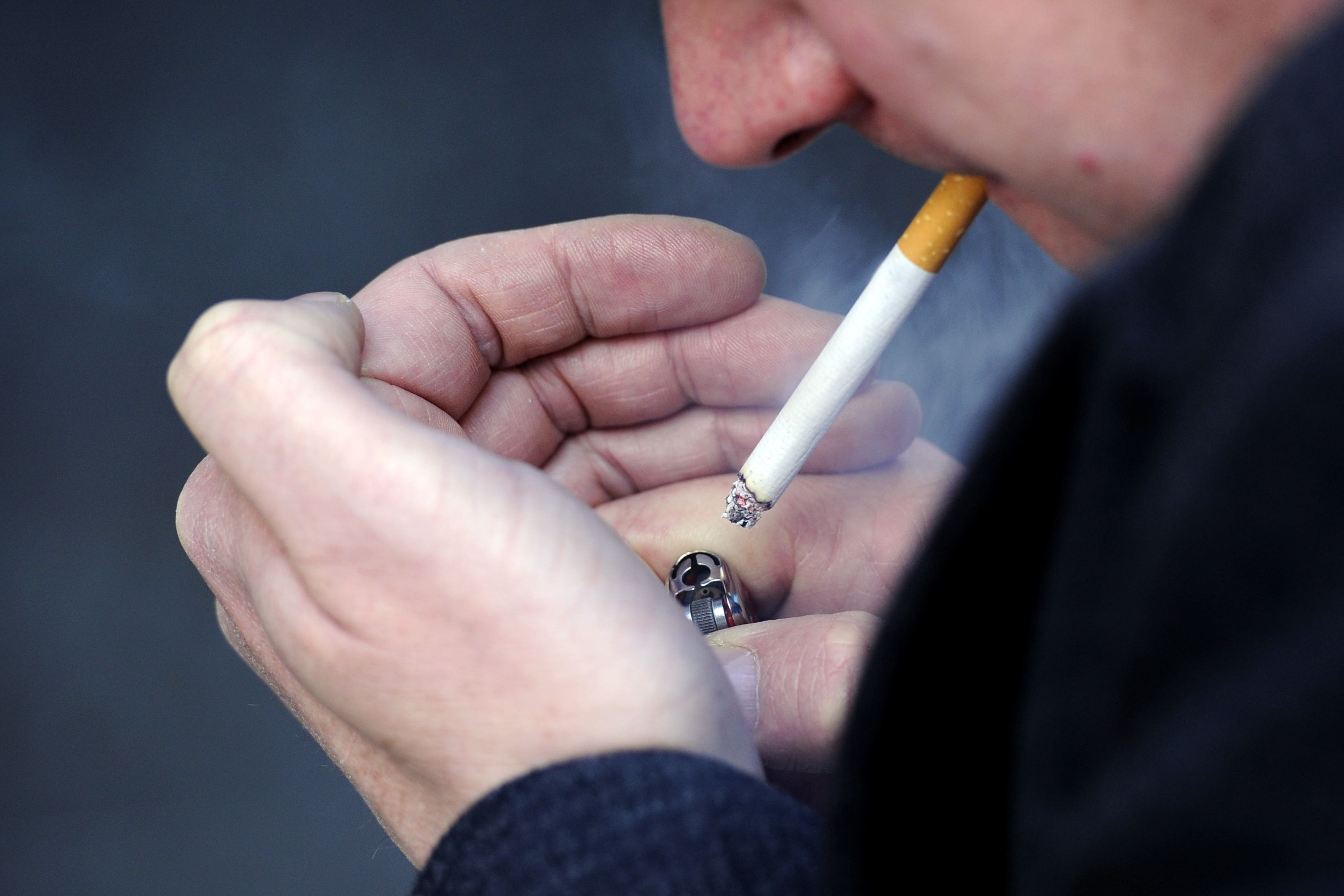Poorest people in England ‘will not be smoke-free until after 2050’
There are nearly twice as many cancer cases caused by smoking in the poorest areas compared to the wealthiest in England, a charity said

Your support helps us to tell the story
From reproductive rights to climate change to Big Tech, The Independent is on the ground when the story is developing. Whether it's investigating the financials of Elon Musk's pro-Trump PAC or producing our latest documentary, 'The A Word', which shines a light on the American women fighting for reproductive rights, we know how important it is to parse out the facts from the messaging.
At such a critical moment in US history, we need reporters on the ground. Your donation allows us to keep sending journalists to speak to both sides of the story.
The Independent is trusted by Americans across the entire political spectrum. And unlike many other quality news outlets, we choose not to lock Americans out of our reporting and analysis with paywalls. We believe quality journalism should be available to everyone, paid for by those who can afford it.
Your support makes all the difference.The most deprived people in England will not be smoke-free until after 2050 – more than 20 years behind the Government’s target, a charity has warned.
In 2019, the Government set out an ambition for England to be smoke-free by 2030.
It commissioned a review, published last June and led by Javed Khan, which said that “without further action England will miss the smoke-free 2030 target by at least seven years, and the poorest areas in society will not meet it until 2044”.
Now, new analysis by Cancer Research UK shows the most deprived 10% of the population is expected still to have higher smoking rates in 2050 and will not be smoke-free by that date (defined as less than 5% of the adult population smoking).
All political parties should agree on the critical steps to bring an end to smoking for everyone
Cancer Research UK’s chief executive Michelle Mitchell said: “It’s appalling to see that the most deprived communities in England are not projected to be smoke-free until after 2050.
“There are nearly twice as many cancer cases caused by smoking in the poorest areas compared to the wealthiest in England.
“It’s been reported that the Prime Minister is considering raising the age of sale of tobacco – this has broad support and is something we would welcome.
“But we still need tangible action to help people who smoke quit.
“The autumn statement could be the perfect opportunity for (Chancellor) Jeremy Hunt, with cross-party support, to make the tobacco industry pay for the damage it causes.
“All political parties should agree on the critical steps to bring an end to smoking for everyone.”
Since the last UK general election in December 2019, tobacco has caused more than 200,000 cases of cancer in the UK, Cancer Research UK said.
It also pointed to data suggesting that while overall smoking rates in England continue to decline, the trend has slowed down.
A Government spokesman said: “Smoking is a deadly habit – it kills tens of thousands of people each year and places a huge burden on the NHS and the economy.
“We want to encourage more people to quit and meet our ambition to be smoke-free by 2030, which is why we have already taken steps to reduce smoking rates.
“This includes providing one million smokers in England with free vape kits via our world-first ‘swap to stop’ scheme, with a focus on the most deprived areas and groups.
“We are also launching a voucher scheme to incentivise pregnant women to quit and are consulting on mandatory cigarette pack inserts.”